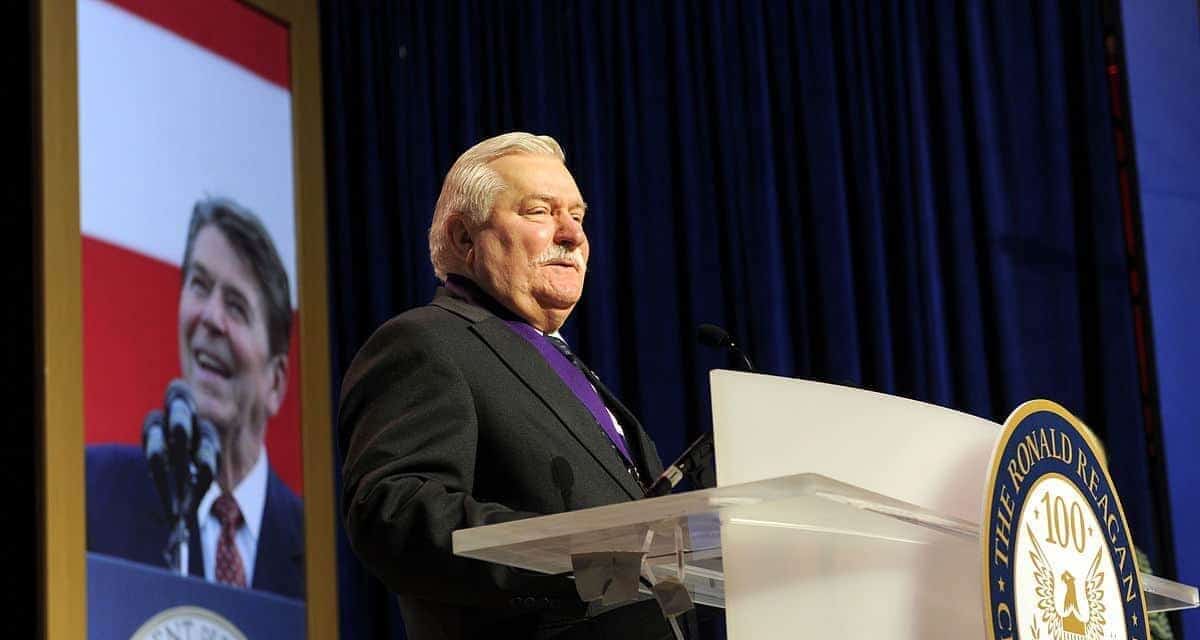On this day in history Lech Walesa the leader of the Solidarity Trade Union is released and returns to his native Gdansk in Poland. He was greeted by hundreds of supporters who saw him as the leader of his country’s resistance to Communism and Soviet-Domination. Walesa had been detained in a remote lodge in Easter Poland for almost a year.
Walesa was born to a humble family and he became an electrician. He later worked at the Gdansk shipyards. Walesa was unhappy at the workers’ treatment and he tried to agitate for better pay and conditions. He was fired by the communist authorities and he had real problems getting a job. The economic situation in Poland was deteriorating badly and there were food shortages. In August 1980 after a woman nearing retirement was fired, at Gdansk shipyards, the anger of the workers boiled over and they went on strike. Walesa returned to the shipyards and became the leader of the strike. He was able to force the communist regime to recognize the Union and this was a first in East Europe. After this Solidarity as the Union became known became a mass movement. Soon it had ambitions to reform the entire communist system. Solidarity was able to gain greater political and religious freedoms for the ordinary people of Poland and Walesa became a national hero. He was feared in Moscow as a threat to the communist party in Poland but in the west, he was lauded as a democrat and a champion of freedom.

Solidarity became ever more radical and began to demand the democratization of Poland and the end of one-party rule. This was not acceptable to Moscow and they feared that their Empire in Eastern Europe could crumble if the Polish communists give in to Solidarity’s demands. In 1981 the Polish Communist regime declared martial law and immediately banned Solidarity and imprisoned thousands, including Walesa. Solidarity was forced underground and it continued to defy the communists. The Trade Union believed in peaceful resistance to the Communists. The clear majority of the Polish people were sympathetic to the Solidarity and Walesa after his imprisonment became even more popular.
Walesa continued to be the leader of Solidarity even after it was banned. In 1983 he was awarded the Nobel Peace Prize but could not attend the ceremony in case the Communists would not leave him back into the country. In 1988 there were another, waves of strikes staged by Solidarity. The communists in Warsaw wanted to crack down on the strikers by in Moscow Gorbachev refused to back such a policy. This forced the Communists to enter into negotiations with Solidarity and later they announced semi-free elections. Soon Solidarity was in government and by the start of 1989, it was clear that Communism was finished in Poland.

